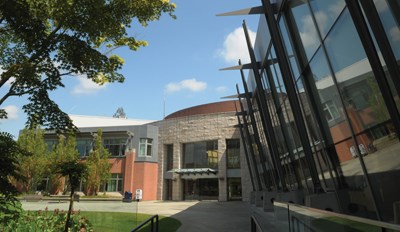Proposed liquor regulation changes that have been under consideration by the city of Coquitlam for close to a year will go to a second public hearing later this month following a contentious council debate Monday.
The rule changes would allow for liquor manufacturing and the creation of craft breweries and distilleries in some industrial and commercial zones. It would also permit liquor retailers to operate within grocery stores, providing they abided by certain separation distances.
The revised bylaw was unanimously moved from first reading to public hearing, but not before behind-the-scenes tensions spilled out into the open council meeting.
Coun. Bonita Zarrillo said she was disappointed with how the revisions were drafted, noting that council members took unofficial votes on each piece of the bylaw during a committee meeting last month that she did not attend. She added that it appeared some council members had already made up their minds on the rules before they had gone to another public hearing.
“Actual details of the bylaw have been decided on by some kind of straw poll that I wasn’t present for,” she said, later adding, “We shouldn’t be cloak and shadows around what we do.”
The comments drew a rebuke from Mayor Richard Stewart, who noted that the process was decided on by council members.
Following the first public hearing on the issue in February, which ended with council sending the bylaw back to committee, staff said they would go through the bylaw piece by piece to gauge what aspects of the regulations council supported.
City manager Peter Steblin defended the process, saying Monday that unofficial votes “are not final decisions — they are expressions of intent… This is the process we felt had the greatest possibility of success.”
“I think the process actually worked quite well,” Stewart added.
The mayor also took issue with Zarrillo’s suggestion that council “did anything untoward,” adding “I would suggest this not be something you berate your council colleagues on.”
“I am not berating anyone,” Zarrillo responded.
Several council members countered Zarrillo’s assertions that the drafting of the bylaw was not an open process.
Coun. Dennis Marsden said informal polls of council in committee were conducted during the drafting of the affordable housing strategy and that he was comfortable utilizing that framework for the liquor rules.
Coun. Terry O’Neill concurred, noting that all of the discussions were done in an open committee meeting that can be viewed on the city’s website.
“There are no shadows or subterfuge here,” O’Neill said. “I would like the public to be very confident that this process has been very open.”
There are several key differences between the revised bylaw and the document that was working its way through council in February.
First, the new rules would see the separation distances between liquor stores and schools reduced from 300 m in the first draft to 150 m in the second. The revisions would also maintain the 300 m separation distances between individual liquor stores while creating a definition for wine stores.
@gmckennaTC



